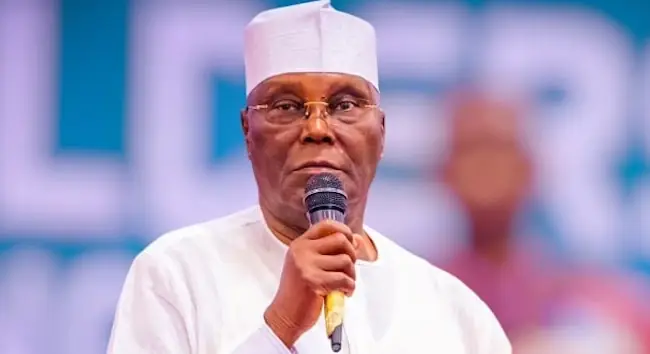The Adamawa State Government has officially revoked the traditional title of Waziri Adamawa from former Vice President Atiku Abubakar, citing a newly adopted indigeneship policy that reshapes leadership eligibility within emirate councils across the state.
The move was detailed in a circular dated 20 June 2025 and signed by Mrs Adama Felicity Mamman, Permanent Secretary of the Department of Chieftaincy Affairs.
It forms part of a wider restructuring of traditional institutions under Governor Ahmadu Umaru Fintiri’s administration, following the recent creation of new chiefdoms.
The title of Waziri Adamawa, historically regarded as the second most senior position in the Adamawa Emirate after the Lamido, is now subject to revised eligibility criteria.
Under the new guidelines, only indigenes from Yola South, Yola North, Girei, Mayo-Belwa, Song, and Zumo districts are permitted to hold emirate council titles or positions. Atiku, hailing from Jada Local Government Area under the Ganye Chiefdom is thereby rendered ineligible.
The circular further clarified that the policy would apply uniformly to all council members and traditional titleholders within the state’s emirate systems, potentially affecting a number of other prominent figures whose origins fall outside the approved districts.
While the government maintains that the policy is administrative in nature and aimed at improving traditional governance, political observers are drawing connections between the decision and the deepening rift between Governor Fintiri and Atiku Abubakar.
The two were leading figures in the Peoples Democratic Party (PDP) during the 2023 general elections, but relations have since cooled amid emerging political realignments.
Atiku has in recent months been linked to discussions with major national political figures including Peter Obi, Nasir El-Rufai, and Senator Aishatu Binani. These developments have fuelled speculation around the formation of a new opposition alliance ahead of the 2027 elections.
Adding to the controversy is a bill presently before the Adamawa State House of Assembly that proposes granting the governor the authority to depose traditional rulers deemed unfit and directly appoint their successors.
Critics argue that the bill, if passed, would centralise excessive power in the state executive and undermine the independence of traditional institutions.
The unfolding situation marks a significant shift in the interplay between traditional authority and political power in Adamawa State, and observers are watching closely for further fallout.



